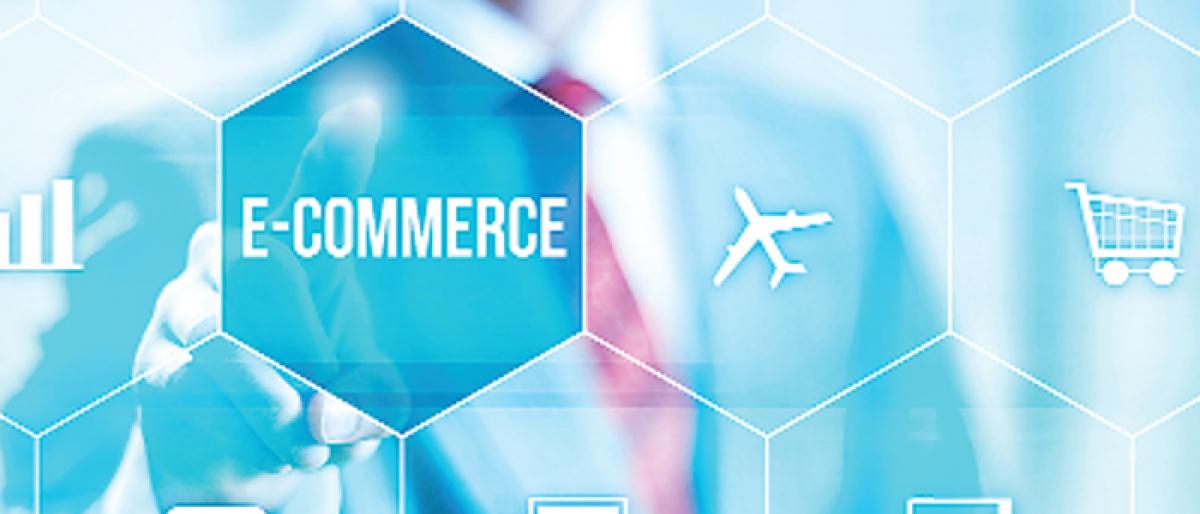Live
- AI can boost early diagnosis of liver disease: Study
- Varun's appointment as AHUDA chief infused new vigour in JSP cadres
- Lokayukta, HRC will remain in Kurnool: Minister Bharath
- S Korea, US, Japan unveil secretariat establishment, slam N Korea-Russia on Ukraine war expansion
- Light to Moderate Rains Expected in Telangana and Andhra Pradesh
- Pilgrims throng Sabarimala temple on opening day of long festive season
- Jwala Thoranam held at Srisailam temple
- Birsa Munda Jayanti celebrated
- Another tigress released in soft enclosure in Similipal
- Coastal defence exercise on Nov 20-21
Just In

Prime Minister Narendra Modi recently stated that Digital India has checkmated black money, and black marketing. He also urged the citizens to ignore rumours spread regarding money not being safe when used digitally.
Prime Minister Narendra Modi recently stated that Digital India has checkmated black money, and black marketing. He also urged the citizens to ignore rumours spread regarding money not being safe when used digitally.
Though demonetisation led to a 200 per cent jump in e-commerce, there seems to be a gap in between reality and the claims made. While digital economy brought in the power and convenience to exchange money, it also brought with it a number of taxes and the fear of being robbed.
Surya Prakash, retired bank employee, observes: “digital economy hasn’t completely wiped off black money. And as it had appeared in media itself, even after demonetisation, the money that was sent from the RBI to the chest went directly into the mouth of big fishes instead of reaching the banks. Even the real estate transactions are not totally devoid of black money these days.”
While an enormous section of transactions and payments have come under the radar, there is also the elite percentage outsmarting the digital wave.
The Prime Minister’s urge to ignore rumours about digital being unsafe is a very tricky statement. For the simple reason, if that was the case, why are banks repeatedly giving instructions to customers not to share any personal account details. With government suggesting citizens to operate separate bank account for digital transactions is an ample proof that all is not well with digital transactions.
Prakash further added: “the threat of phone being hacked is always there. Though the government is evolving new and safer measures to protect the customers from online malpractices, it can’t be denied that as the technology is developing, so are the criminal minds.”
Digital payments are proving to be expensive too as taxes levied are passed on to the customers many a time. Multiple avenues for digital transaction have opened up. With every new emerging trend, clarity on the fees levied is very ambiguous. Anil, co-founder, PaySwiff said: “To what extent is our country educated enough to understand and be aware. The Government should create awareness about the charges or fees that are levied with reasonable break-ups.”
At present, B2B payments are through online banking mode while B2C at the micro level are through wallets or phone banking. Ghanshyam Bhati, Telangana convener, Confederation of All India trade, said, “there are nearly 1.2 crore kirana shops in India working in semi and wholesale pattern. And, post demonetisation and GST, 90 per cent of the wholesale market shifted to online banking transaction. In our business, nearly 70 per cent is through RTGS, while any amount below Rs 10,000 is dealt in cash.”
While one segment of people is contented with digital payments, the others aren’t.
Sheik Salahuddin, state president, Telangana Four-wheeler Drivers’ Association states that, Cab aggregators like Ola and Uber have made payments convenient for the passenger but it’s a hindrance for the drivers. While digitally transferred bill payment in Ola is accounted into the drivers’ bank account in 24 hours, Uber uses Paytm mode which takes over a week to be deposited into the account.
“Most of these MNC professionals pay through digital money, due to which, sometimes we do not have the cash to buy groceries for home or to pay at petrol bunks or to the mechanic. If we travel outstation, then we end up using card on which an extra charge is levied.”
The diversity in India makes it arduous to implement ‘the digital’ and gratify every segment of citizen. Digital brought in ease at a cost. While netizens are delighted to pay the price, the rest are finding it gruelling to cope up with.
By: Divya Rao

© 2024 Hyderabad Media House Limited/The Hans India. All rights reserved. Powered by hocalwire.com







